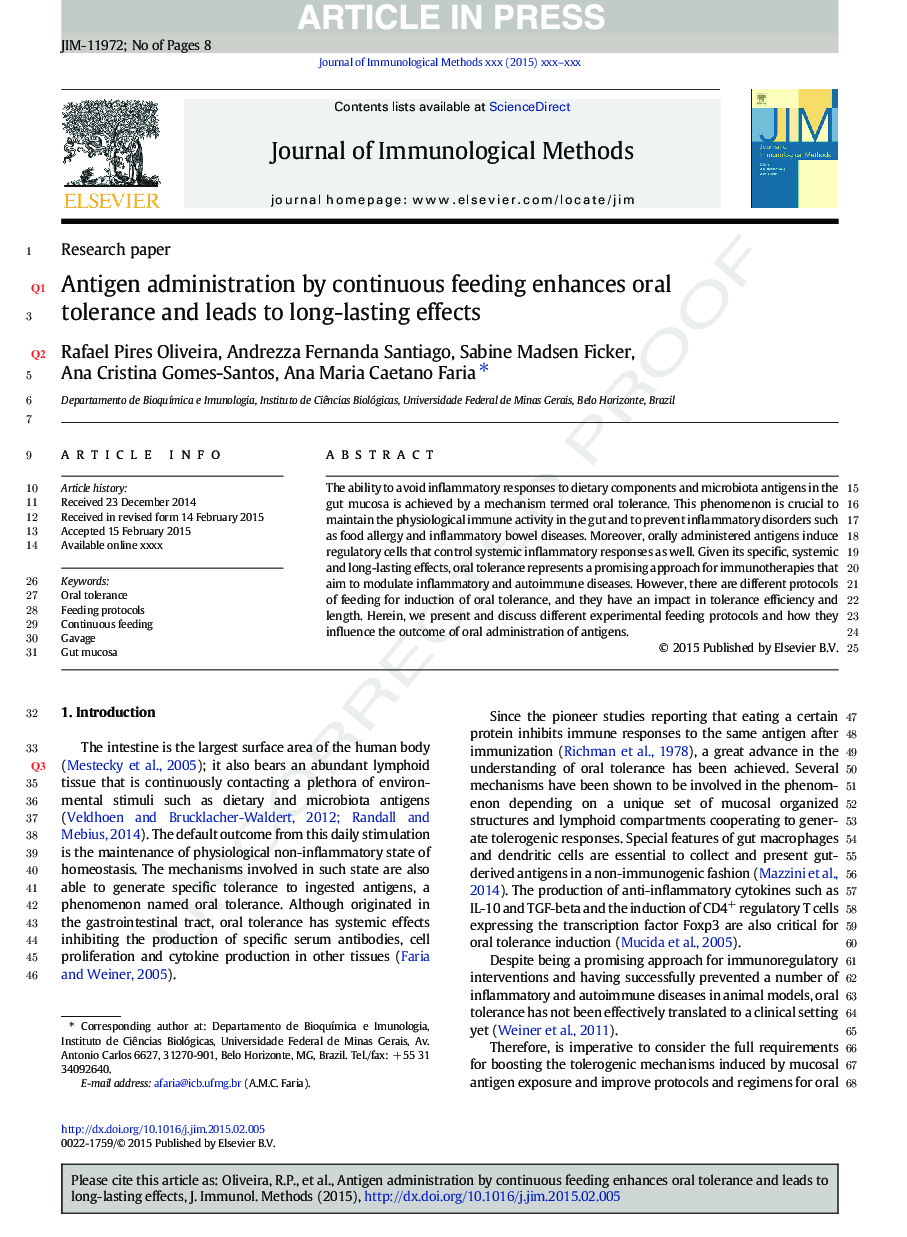| Article ID | Journal | Published Year | Pages | File Type |
|---|---|---|---|---|
| 8417463 | Journal of Immunological Methods | 2015 | 8 Pages |
Abstract
The ability to avoid inflammatory responses to dietary components and microbiota antigens in the gut mucosa is achieved by a mechanism termed oral tolerance. This phenomenon is crucial to maintain the physiological immune activity in the gut and to prevent inflammatory disorders such as food allergy and inflammatory bowel diseases. Moreover, orally administered antigens induce regulatory cells that control systemic inflammatory responses as well. Given its specific, systemic and long-lasting effects, oral tolerance represents a promising approach for immunotherapies that aim to modulate inflammatory and autoimmune diseases. However, there are different protocols of feeding for induction of oral tolerance, and they have an impact in tolerance efficiency and length. Herein, we present and discuss different experimental feeding protocols and how they influence the outcome of oral administration of antigens.
Related Topics
Life Sciences
Biochemistry, Genetics and Molecular Biology
Biotechnology
Authors
Rafael Pires Oliveira, Andrezza Fernanda Santiago, Sabine Madsen Ficker, Ana Cristina Gomes-Santos, Ana Maria Caetano Faria,
